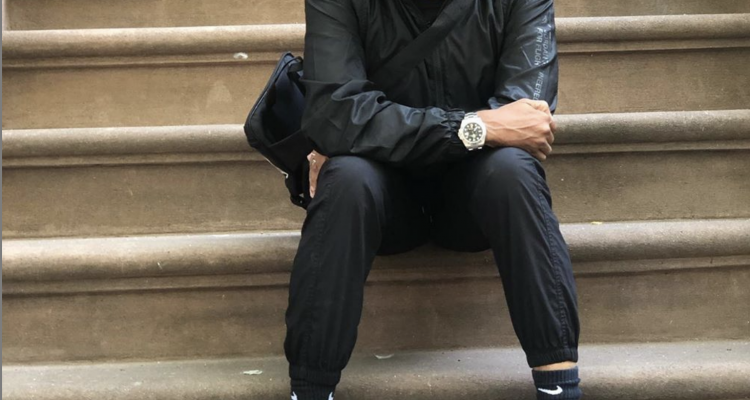Wearing a fluorescent orange jacket and matching glasses, Spike Lee made a statement when he walked onto the stage of the Regina A. Quick Center. His hat simply had “1619” on it, referring to the year slaves were first brought to Jamestown from Africa. The Quick Center was packed like sardines and jittering with awe and excitement as the legendary director of “Do the Right Thing,” “Malcolm X” and “BlacKkKlansman” talked for over an hour about his influential career.
Lee’s presence was strong and relaxed. He talked carefully and thoughtfully, knowing just how important his words were to an audience of students and Fairfield residents alike. He was casual with the audience, never acting like he was better than anyone else in the crowd, constantly rebutting questions that insisted he was anything more than a Brooklynite who loved film and worked hard.
Before he even took the stage, however, he made time to speak with a group of roughly 30 students and answer their questions about his expansive career and notable works. In one such instance, he responded to an inquiry about what initial reactions to his 1989 film “Do the Right Thing” were like, citing reviews by critics such as Joe Klein and David Denby of New York Magazine and Jack Kroll of Newsweek that felt people would find the film powerful enough to incite riots. He seemed to find these insinuations ridiculous, and didn’t linger long on their words.
By 8 p.m. the main forum began, opening with remarks from Phillip Eliasoph, Ph.D., and executive director of the Quick Center Peter van Heerden. They were followed by Rachelle Brunn-Bevel, Ph.D., the associate professor of sociology and anthropology here at Fairfield who introduced Lee to the stage. She drew similarities between him and herself, noting their shared home in New York City, their statuses as teachers and the importance they place on the power of social change. With that, Lee was invited on stage to give his opening remarks and begin the main event.
He spent much of the time on his own emphasizing the value of teachers, speaking both with respect for the profession and from the personal perspective of being a teacher, as he is currently a professor in the Graduate Film Program at New York University’s Tisch School of the Arts. He strongly stated his belief of paying teachers “what they deserve,” and valuing what they contribute to their students’ learning. He also stressed that what he looks for in students is hustle. More than anything, he believes students should have the drive to succeed in order to become successful in their fields.
During the main event, Lee was asked questions by Claudia Calhoun, Ph.D., a film, television and media arts professor, and Eliasoph. Their questions were thoughtful and provocative, allowing Lee to talk about his humble beginnings. He spoke about how his first experience with a camera was an accident. One summer in highschool, he was gifted a camera, and, being a bored teenager in Brooklyn, he went around filming his local area. He didn’t plan on using the footage for anything, but when he went back to school, his teachers convinced him to turn his footage into a documentary, igniting Lee’s passion for film.
They covered a range of topics surrounding his career, including the origin of the double dolly shot that characterizes most of his films. Although the iconic technique started as just something to add flavor to his films, he realized that it had such an impact that he decided to use it to create thematic depth to his films and show character change.
He also talked about his struggles with funding for one of his biggest films, “Malcolm X.” He wanted the film’s final cut to be three hours long, but Warner Brothers, the production company, was against it. After using his one million dollar paycheck, he reached out to friends and coworkers like Oprah, Tracy Chapman, Prince and Magic Johnson. Then, through their gifts, he was able to create the version audiences love. It was a great story of community support and achievement.
What came across most clearly in his conversation, however, was his overall assertion about why he makes films in the first place.
“The goal has never changed,” Lee said. “The goal is to be a storyteller.”


Leave a Reply